
François-Marie Arouet, known by his nom de plumeM. de Voltaire, was a French Enlightenment writer, philosopher (philosophe), satirist, and historian. Famous for his wit and his criticism of Christianity and of slavery, Voltaire was an advocate of freedom of speech, freedom of religion, and separation of church and state.

Charles XII, sometimes Carl XII or Carolus Rex, was King of Sweden from 1697 to 1718. He belonged to the House of Palatinate-Zweibrücken, a branch line of the House of Wittelsbach. Charles was the only surviving son of Charles XI and Ulrika Eleonora the Elder. He assumed power, after a seven-month caretaker government, at the age of fifteen.
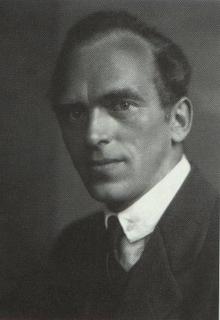
Frans Gunnar Bengtsson was a Swedish novelist, essayist, poet and biographer. He was born in Tåssjö in Skåne and died at Ribbingsfors Manor in northern Västergötland.

Élie Catherine Fréron was a French literary critic and controversialist whose career focused on countering the influence of the philosophes of the French Enlightenment, partly through his vehicle, the Année littéraire. Thus Fréron, in recruiting young writers to counter the literary establishment became central to the movement now called the Counter-Enlightenment.
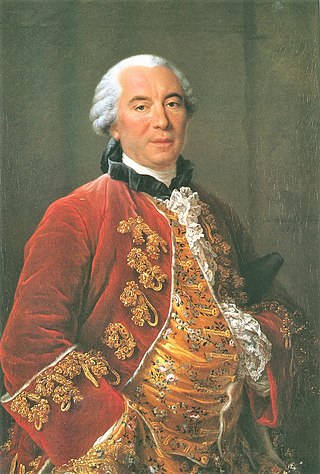
Georges-Louis Leclerc, comte de Buffon was a French naturalist, mathematician, and cosmologist. He held the position of intendant (director) at the Jardin du Roi, now called the Jardin des plantes.
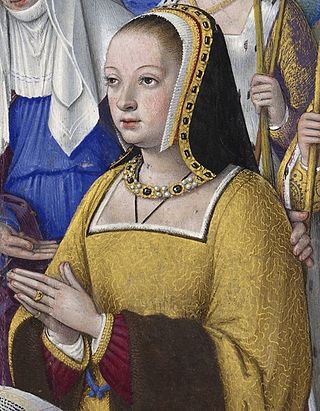
Anne of Brittany was reigning Duchess of Brittany from 1488 until her death, and Queen of France from 1491 to 1498 and from 1499 to her death. She was the only woman to have been queen consort of France twice. During the Italian Wars, Anne also became Queen of Naples, from 1501 to 1504, and Duchess of Milan, in 1499–1500 and from 1500 to 1512.
Doctor Akakia is a satirical book of a very biting nature by Voltaire, directed against pretentious pedants of science in the person of Maupertuis, the President of the Royal Academy of Sciences at Berlin. It so excited the anger of Frederick the Great, the patron of the Academy, that "[t]he Akakia was officially condemned in Prussia and burned by the public executioner on Christmas Eve of 1752".
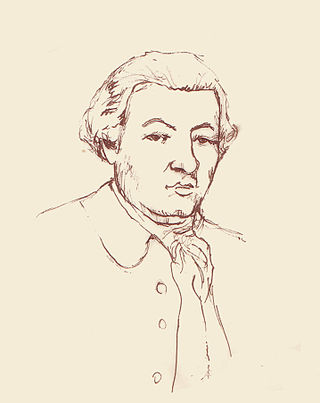
Charles Théveneau de Morande was a gutter journalist, blackmailer and French spy who lived in London in the 18th century.
Pierre Milza was a French historian. His work focused mainly on the history of Italy, the history of Italian immigration to France and the history of fascism, of which he was a recognized specialist.
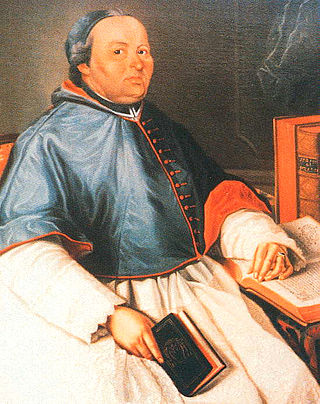
Jean-Martin de Prades (c.1720–1782) was a French Catholic theologian. He became famous through a thesis he presented that was considered irreligious.
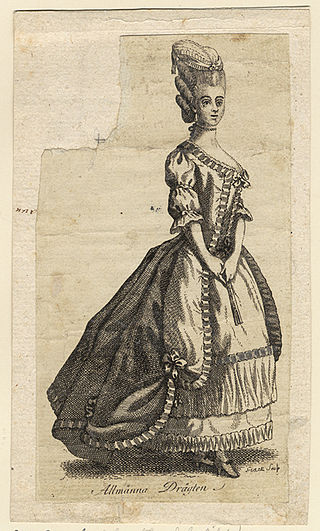
Nationella dräkten is a historic Swedish costume, designed by King Gustav III and introduced in 1778. It was designed for the nobility and the middle class with the intention of limiting rising consumption and import of luxury within fashion, which was considered a drain on the economy and detrimental to society because of ensuing poverty. A masculine and a feminine costume were designed. The woman's version of the costume was to have a lasting effect, modified several times later, as the official costume of the Royal Court.

Countess Maria Aurora von Königsmarck was a Swedish and German noblewoman of Brandenburg extraction and mistress of Augustus the Strong, Elector of Saxony and King of Poland.
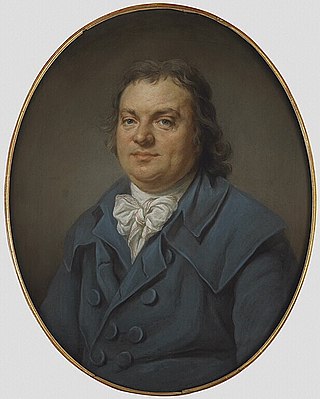
Jean-Charles Laveaux was a French grammarian and translator.
The Grand Prix de la francophonie is presented annually by the Académie française at the initiative of the Canadian Government to a personality who contributes to the development of the French language throughout the world.
Bernard II, Count of Laon was a Frankish noble and a member of the Herbertien dynasty, a branch of the Carolingian dynasty. He was a descendant of Pepin of Italy and Charlemagne.
Countess Sabine Elisabeth Oelgard von Bassewitz was a German writer.
Gunnar von Proschwitz was a Swedish Romance philologist.

The Coppet group, also known as the Coppet circle, was an informal intellectual and literary gathering centred on Germaine de Staël during the time period between the establishment of the Napoleonic First Empire (1804) and the Bourbon Restoration of 1814–1815. The name comes from Coppet Castle in Switzerland.

Mérope is a tragedy in five acts by Voltaire. The text is a reworking by Voltaire of the Italian tragedy Merope (1713) by Scipione Maffei, dating from 1736/1737. The play premiered in 1743 and first appeared in print in 1744.

Ériphyle is a tragedy in five acts by Voltaire. He began working on it in 1731 and it was completed and performed in 1732. The poor success of the stage premiere prompted Voltaire to cancel the printed version.














